GOLD
GOLD
Have you ever encountered someone that, just from simply meeting and talking to them for awhile creates a fully immersive human “experience”, one that leaves you interminably changed, but you’re not quite sure how or why?
Six months ago, I had not heard of Bizzie Gold, Buti Yoga®, or the coined term “Butisattvas”, which has become synonymous with instructors and students alike that have wholeheartedly embraced the practice of Buti Yoga® as a lifestyle and art form.
The fact that I’d never heard of it says a lot more about me than does about Buti®. The popularity of this unique form of yoga that combines the deep-core strength and conditioning of traditional yoga poses with dominant primal movements and Plyometrics has been on the rise since it’s creation in 2010. But being the type of gal who would sooner sit on the couch knuckle deep in a bag of Orville Redenbacher’s popcorn, even while simultaneously being “inspired” by watching workout videos, it’s no surprise that it escaped my notice.
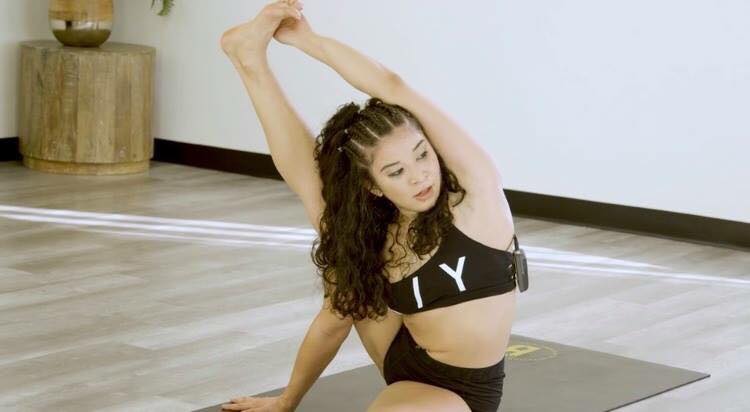
Back in July of 2018, I had the privilege of becoming the blogger for YogiYogaWear®, and the first person who introduced me to Buti Yoga® was a stunningly beautiful Butisattvas and YYW’s affiliate, Ceara Caisado. Truthfully, since then I’ve had the privilege of interviewing and blogging about some of the most badass women I’ve ever encountered. These are intentional, empowered, positive women, all of whom differ in both appearance and personality, but with one common theme:
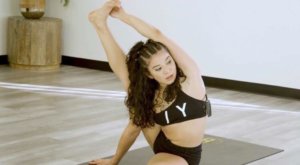
Back in July of 2018, I had the privilege of becoming the blogger for YogiYogaWear®, and the first person who introduced me to Buti Yoga® was a stunningly beautiful Butisattvas and YYW’s affiliate, Ceara Caisado. Truthfully, since then I’ve had the privilege of interviewing and blogging about some of the most badass women I’ve ever encountered. These are intentional, empowered, positive women, all of whom differ in both appearance and personality, but with one common theme:
I heard it again from Yogi Yoga Wear’s founder, Nina Joy Rizzo, a few months ago, after she’d attended Bizzie Gold’s workshop, The Break Method. In fact, everyone I’ve ever met that either knows her, has taken her classes, her workshops or heard her speak has consistently said the same thing, “Bizzie is amazing.”
So, last week when I was told that I’d be given the opportunity to interview Bizzie because she will be in Sedona teaching her Buti®, Buti Deep® and The Break Method® classes at the Sedona Yoga Festival March 14-17th, needless to say, I had some pretty high expectations. To be honest, I didn’t think there was any possible way she could live up to the hype. I had no idea what to expect, but it really doesn’t matter now anyway because Bizzie is simply, well, Bizzie
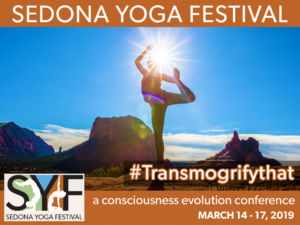
So, last week when I was told that I’d be given the opportunity to interview Bizzie because she will be in Sedona teaching her Buti®, Buti Deep® and The Break Method® classes at the Sedona Yoga Festival March 14-17th, needless to say, I had some pretty high expectations. To be honest, I didn’t think there was any possible way she could live up to the hype. I had no idea what to expect, but it really doesn’t matter now anyway because Bizzie is simply, well, Bizzie.
At the time of our scheduled Skype call, I had received a call from one of Bizzie’s colleagues Adrienne, stating that an emergency had come up and they were “putting out fires and unfortunately Bizzie would have to cancel the call.” I completely understood and, as I was preparing to reschedule the appointment with Adrienne, I heard Bizzie in the background saying she would take the call. Less than thirty seconds later, I was chatting with her face-to-face on Skype, and, even despite what I can only imagine was chaos breaking out in every direction around her, Bizzie was calm and cool as a cucumber.
My immediate impression of her is that she is self-assured but not arrogant, straight-forward but not dismissive, self-assured but not pretentious. Even though her demeanor was largely a professional one and she doesn’t strike me as a person who likes to waste her time, she is effortlessly and unapologetically unique. Even though the word “authentic” has become a bit of a buzzword these days, it truly does encapsulate the essence of who she is.
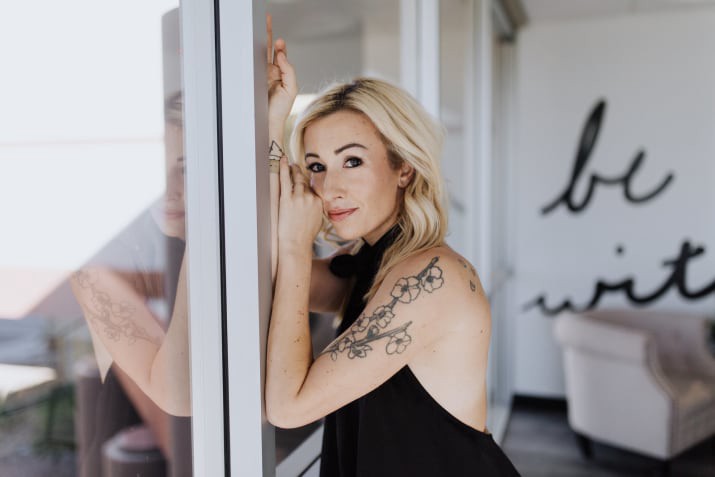
it’s just there, like its own tangible presence.
it’s just there, like its own tangible presence.
You feel it by the way she looks you directly in the eyes when she’s talking to you. She is fearless. Yes, she’s also blonde, strikingly beautiful, and a 34-year old mother of two that somehow looks like she’s about 22. But don’t let her tiny 5’1” frame fool you. This is a woman who is aware of how big a presence she possesses. She is a powerhouse who is on a very clear path to changing the world, and she is embracing her destiny with both fists. She already knows what it is, she’s just in the process of figuring out how to work her way backwards to the future from the present in order to make it a reality.
To be perfectly honest with you, as much as I thoroughly enjoyed my 45-minute conversation with Bizzie, the after-effects of it have been a grueling experience for me.
To be perfectly honest with you, as much as I thoroughly enjoyed my 45-minute conversation with Bizzie, the after-effects of it have been a grueling experience for me.
In fact, this has been one of the hardest weeks of my life as a professional writer. I’ve never been one to struggle with words, and I’ve been writing long enough that I’ve learned to be comfortable with trusting my instincts. I know that, even when I get serious writer’s block, I can almost always get unstuck just by pushing my way through it. This time though, no matter how hard I pushed, I just couldn’t do it. I’ve spent the past five days obsessing with how I could make this blog different, how could I do this extraordinary woman justice, and what could I possibly write about Bizzie that hasn’t already been written?

My initial intention with this blog was to present a narrative approach of Bizzie’s life, a bit about her childhood, her challenges, her Buti® classes and workshops. However, with several of my scripted questions, such as discussing the origins of Buti Yoga® and her emotional re-patterning course The Break Method, Bizzie referred me to other podcasts where she talks about them in detail. They’re well-worth listening to, by the way, Yoga Revealed and This is the Platform; I would highly recommend checking them out. However, I didn’t want to simply regurgitate what I’d heard from other sources, but my attempts at writing anything unique and worthwhile kept missing the mark.
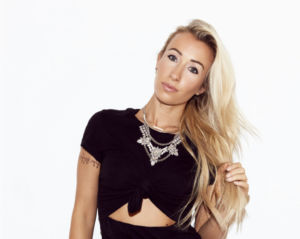
My initial intention with this blog was to present a narrative approach of Bizzie’s life, a bit about her childhood, her challenges, her Buti® classes and workshops. However, with several of my scripted questions, such as discussing the origins of Buti Yoga® and her emotional re-patterning course The Break Method, Bizzie referred me to other podcasts where she talks about them in detail. They’re well-worth listening to, by the way, Yoga Revealed and This is the Platform; I would highly recommend checking them out. However, I didn’t want to simply regurgitate what I’d heard from other sources, but my attempts at writing anything unique and worthwhile kept missing the mark.
By this morning, I felt like an abysmal failure and I was fully ready to throw in the towel. But then this afternoon, while staring blankly at my computer screen and sipping my third cup of dark roast coffee at Starbucks, I decided to listen to my recording of my interview with Bizzie again. By the end of it, I was sobbing, like full-on, sniffling, snot-nosed with intermittent hiccups sobbing. It wasn’t pretty.
When I finally managed to pull it together, I took my eight pages of transcribed notes and started to write.
it was the content we’d discussed that had created the internal struggle.
I have no idea how I’d failed to recognize the trigger points sooner, but now that I’m aware of them, I’ve got a conscious stream of thought flowing from my fingertips.
I’ve decided the best way that I can do Bizzie justice is by letting, not just her words, but the flow of her thoughts, speak entirely for themselves. I had realized about 15 minutes into our conversation, that the best way to interview Bizzie was just to talk to her, without any clear set path or direction. When Bizzie talks, it’s just a simple, steady flow of consciousness, and even she doesn’t know what she’s going to say next. For sake of brevity, I will sum up some of our conversation, but there’s too much good stuff here to condense all of it. So, make yourself a cup of tea and settle in. Trust me, it will be worth it.
Childhood and The Influence of Music:
For as long as she can remember, Bizzie has been a spiritual channeler. As a child, she had a gift where she could intuitively “hear the answers” to questions. Her father would often jokingly refer to her as “The Oracle”, because she would interject her thoughts into conversations that were far beyond her age and educational level. As a result of this old-soul wisdom, she often ended up in the role of the mediator and her family would reach out to her for advice. She would often say,
You’re the oracle, you always give the best answers!
You’re the oracle, you always give the best answers!
Sheri: What did you see yourself as a kid actually becoming?
Bizzie: “This is an exercise I actually teach people a lot in Break Method, because I think there’s a lot to what the child version of you desires to be, and I think we don’t spend enough time trying to distill down what those qualities are. But when I was a little kid, I genuinely thought I was going to become Debbie Gibson.”
Sheri (laughs). So, you were actually going to fully embody Debbie Gibson?
Bizzie: “Yes.” (laughs) “I didn’t know how, I just loved Debbie Gibson so much, I was like, ‘I’m gonna be Debbie Gibson! I’m going to be on stage, make people happy singing to them or whatever.’ When I look back at that, I can see what elements of that I was seeing, because I do spend a lot of time on stage, I do feel comfortable on stage, and I loved how Debbie Gibson made me feel.”
Sheri: How are you old enough to remember ‘Electric Youth’? Do you mind if I ask how old you are?
Bizzie: “I’m 34. But here’s how. I don’t know why my parents decided this was a good idea, but it’s just what they did and I’m a product of this. I was never allowed to watch cartoons, ever, I think the first cartoon I ever watched was an episode of ‘Family Guy’ when I was in college, and I was like, ‘Why do people like this? I don’t understand!’ But I could watch as much MTV as I wanted. So, I would get back from pre-school, and I would watch MTV for hours, because at that time, it really just was music videos. I would literally just sit there and choreograph dances all day.”
Sheri: That’s fantastic.
Bizzie: “Music was just in a different place back then, I mean, aside from maybe dancing to an inappropriate Madonna video, which I’m sure I did at some point. And I remember one day in kindergarten, I was listening to ‘Public Enemy’ and my dad saw the cassette tape, with the parental guidance label on it, and he was like, ‘What are you doing?’, and I was like, ‘You’re the one who lets me watch MTV!’”
Sheri (laughs): What about now, is there a musician or a band that really resonates with you?
Bizzie: “Above and Beyond. I love all of it.”
The High School Years:
Being raised in a family where there was high-level importance placed on academia, Bizzie rebelled against it, and for most of her teenage years, she had no desire to participate in academics, focusing instead on athletics. She would continually not do the homework, but still would get excellent grades on her tests. She remembers her dad reviewing her report card with notes from her teacher that read,
“Bizzie doesn’t apply herself and is not present”
but it was a source of frustration because he couldn’t understand why she continued to do so well. He even tried to catch her “cheating” because, even without reading the assigned books, she could still ace the exams with her essay writing. She would instinctively “know the answers” and write them down. This applied to multiple choice tests as well. Sometimes she wouldn’t even need to read the question, she just intuitively knew the right answer.
Bizzie: “Through the context of the mind of a 15-year old, I wasn’t really thinking about these spiritual esoteric concepts. I was just like, ‘I don’t know why, but I know the answer’. I didn’t know that I was channeling. Because we don’t spend a lot of time training children on how to acknowledge their spiritual gifts, because for a lot of us, we just pretend they don’t exist, so they don’t learn to acknowledge their gifts. What then happens is those gifts can then turn against them and become something that perpetuates chaos. That is definitely what happened to me.”
Sheri: Have you ever struggled with feelings of self-doubt or low self esteem?
Bizzie: “No I haven’t, but it probably comes from this ability I’ve always had to just, ‘know the answer’. I didn’t really know how to manage it, and I think earlier in my life, it may have come across as being boastful or a ‘know-it-all’, and I kind-of joke about it, but I think it’s probably true, that if I took an autism test, I’m probably somewhere on the autism spectrum. I generally just didn’t understand, like, ‘if its the right answer, why should I dance around it?’ I think other people do this tactful tip-toeing, but in my mind, I was like, ‘Well, if it’s right, it’s right… “I think it took me awhile, especially as I’ve aged in the last few years, to get to the point where my delivery of that is different. I work WITH it, instead of letting IT work me. It led me into a lot of chaos in my life, like in those moments when it felt overwhelming, it was a lot of pressure. That kind of spiritual pressure, I think can lead to some very human chaos creation mechanisms, which definitely came out in a variety of ways for me.”
Young Adulthood – Dolores Cannon:
That’s exactly what ended up happening. For most of her young adult life, Bizzie tried to suppress her spiritual gifts and run from them, instead opting to engage in what she described as, “a hedonistic, free-for-all lifestyle of hard drinking and partying”.
Bizzie: “I was raised Jewish, and honestly, the Judaism in which I was raised, there were aspects of kind-of ‘spirituality…ish’, but it wasn’t until I was nineteen and I was going to school at the University of Colorado that I had a truly spiritual experience…
I always teach my students to think back to pivotal moments in their life that, as soon as that moment happened, their life was never the same. Even if it just shifted your life 20 percent into a different place, where it’s like, because of that one interaction, it was never the same ever again. That happened to me when I was nineteen, walking down the street in Boulder Colorado. This old woman named Elizabeth ran after me. I’d never seen her before in my life, and she was like, “I have a message for you!” And I was like, “Yeahh? From who?”. At this point, I was very uncomfortable, I think I was making fun of it and didn’t really believe in [my spiritual gifts]. She told me I was going to be the most famous student of Dolores Cannon, and I was like, “But I don’t know who that is…”
Sheri: Whaaaaat?
Bizzie: “Yep… She was like, ‘You’re going to take her work to a completely different level that no one could even imagine’. And I said, ‘Ohhh-okay!’. At this point in my life, I was so run down with anxiety that I didn’t really believe it. Then she pointed across the street and said, ‘There’s a bookstore right there called The Lighthouse, you can go read some of her books. And so, I did.”
“Once I started reading some of Dolores’ books, I was blown away, like my whole brain exploded on the walls. So, I wanted to see if she taught people how to do her method. At that point she wasn’t teaching, but then [in 2004], after a few months of being on her waiting list, I got an email blast, ‘Hey! Dolores is offering a workshop in Fayettville, Arkansas!’, and I was like, ‘Sign me up! I’m goin’!”
“So, I had to apply, and there was a long application process, and because I was still kind-of a little 19-year old shithead, I was like, ‘Well, if this is really meant to be, I’ll just barely fill it out, and I’ll still get in.’ Kind-of tempting fate just a little bit, you know?”
Sheri: Sure.
Bizzie: “So, after reading her books, I knew that she referred to what she called ‘the council’, it was ‘the council’ that helped her make decisions. So [in my application] I basically just wrote, ‘I’m pretty sure the council already decided that I’m supposed to be here, so I’ll see you in Fayettville’, I didn’t even fill out the application. So, I went, and honestly, my life has never been the same ever since, because the freakshow people that I got to meet in that course blew my mind, and my concept of what exists in the universe has never been the same.”
Origins
of Buti
ORIGINS
OF BUTI
As a result of Dolores’ training, Bizzie became a past life regression therapist. In the mid-2000’s, she attended acupuncture school, which gave her a deep understanding of energetics. She also began teaching yoga, as well as writing about and studying TCM [traditional Chinese medicine]. That was her foundational practice prior to Buti®
Bizzie: “I’ve always been drawn to the intellectual, academic side of yoga even more so than the physical”, stated Bizzie, “So, in that aspect, I think I’ve always been able to use my Buti® to channel, and to align what I learned through my study of energetic anatomy with physical movement.”
At the age of 23, Bizzie was diagnosed with lupus.
Bizzie: “Looking back at it, I was not fully protecting myself energetically during my sessions of past life regression therapy, and I was taking on a lot of other people’s pain and trauma.”
Sheri: Are you an empath?
Bizzie paused, then replied: “You know, the more I moved into this work, the more I realize I think I was, but I shut it down intentionally. I think anyone can either turn on or turn off their spiritual gifts at any point in time. And I think at that point, without really having the language [to understand it] early in my 20’s, I think that’s probably what I was experiencing, which I why I ended up getting diagnosed with lupus. And then that mixed with being in acupuncturist school which is incredibly challenging in terms of workload. I think I just took a vow to shut all of that down and delve deeper into my very grounded humanity. I shut off my connection to the energetic realm for awhile because it was just too overwhelming.”
Bizzie: “A lot of the work I did in past life regression therapy and a lot of the hypnosis techniques, there are aspects of that work, not as they were taught to me, but more ‘the goals’ of what that work is there to achieve, that has come back around full circle for me in ‘Break Method’. It works to achieve similar goals in making the quality of your human experience better, less painful, and to create more space for you to really step in to know what your soul’s path or destiny is, instead of getting so bogged down by just the physical human experience. That is what I focus on in ‘Break Method’.”
At the age of 24, Bizzie became pregnant with her daughter. She underwent a deeply traumatic experience when her daughter was nearly dead for twenty minutes, and Bizzie herself nearly died while in the process of giving birth.
So, in 2010, at the request of her mother-in-law, she attended a native American ceremony in order to break through some of the trauma. During that experienced, she received a “very clear download that we are not moving the body in a way that benefits the chakra system and endrocrin system in the way that it needs to be activated. Using the ‘spiral structure technique’, we have to work the body along the spiral and not just in linear connection”. After the ceremony, when she went to teach her yoga classes, buti “just came out” and it has continued to evolve ever since.
BUTI YOGA
BUTI
YOGA
Sheri: What is it behind the specific music choices when you teach Buti®? It seems like a combination between masculine and feminine energy, what’s your reason for that choice?
Bizzie: “My musical choices have evolved over time, but now we’re leaning into more of a tribal EDM [electronic dance music] feel for the music, and I think it really inspires the body’s natural primal movements. You can look at cultures all around the world, especially indigenous cultures which have built a structure around primal movement, but really at their core, as you look through a variety of different cultural dances, they have similar elements to them, and in many ways, they’re telling the story of humanity.
Sheri: Interesting.
Bizzie: “So, when Buti® continued to evolve, it basically became this moving art piece that was channeled in the moment from the music that was chosen that connected with the energy of the people in the room. In that way, every class ends up being this ‘living art masterpiece’ that is never duplicated,” she paused, then added, “which I love.“
Sheri: Your classes have never been duplicated?
Bizzie: “No, I’ve never taught the same class twice. Nobody can if you’re doing it correctly. We encourage our students and teachers not to prepare their classes and instead focus on how to understand the foundation on which the practice is built, and to use your playlist choices and the energy in the room to create that moving art piece.”
Sheri: If you don’t teach the same class twice, are their certain movements within it so there’s a foundational structure to it?
Bizzie: “Yes, there’s foundational elements to it, and we also teach people how to safely evolve those movements with their creativity using clear anatomic principles.”
Sheri: So, you’ve been teaching Buti® since 2010, and then you started teaching Buti Deep. “What then, are the differences between the two?
About a year and a half ago. one of Bizzie’s staff members had asked her, “Bizzie, have you ever come up with a restorative format that is more yin-based?” She replied,
The next day she called everyone into the studio. In her channelling meditative practice, she had seen exactly what needed to be done for the restorative practice. It had to involve physical touch and a specific cross-crawl technique, where you cross mid-line at the body and down into the muscle layers. Then you also cross the muscle layers back out into the fingertips to close that loop. By working the body along the “spiral structure technique” you can release stored trauma in the cells and fascia.
Bizzie: “In a lot of [Buti Deep] classes, people that typically struggle with flexibility, because we’re activating the stabilizing muscles first and hitting that deep core layer, as soon as we go into the deeper stretch, they’re able to get so much further into the stretch. That is because the body will naturally lock out that specific joint area if the stabilizing muscles are not strong enough to help the joints safely open. In deep, we work the stabilizing muscles so much that the joint area is not locking down and preventing opening because the stability is there to support the expansion.”
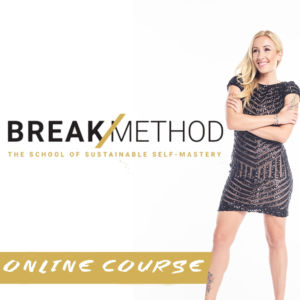
Even though ‘The Break Method’ had been evolving for years, even before the development of Buti®, Bizzie began channeling ‘The Break Method’ at the end of 2014.
For about 4-5 years, between the ages of 25-29, Bizzie recalls having these moments that she describes as, “what a lot of people would call ‘dissociation’”. But for her, she explains it as,
Bizzie continued: “This still happens to me, and I think for a long time, I feared it. It would give me anxiety and I would act out and do all kinds of crazy shit, and then go drink, party and do whatever I could to escape this hectic space in my head. It felt very dissociative.”
Near the end of 2014, she decided to speak to her husband about it.
Bizzie: “I just said to him, ‘Here’s the deal, I’m sick of fighting with whatever this is. And I realized that I’ve never actually allowed myself to just ‘be’ in this space and allowing what I’m thinking to come through, I always just panic and shut it down. I keep sharing narration of my life, and it’s not the cadence of my speech, it’s not the way I would talk and I’m not talking about things I tangibly know. So, do me a favour, watch the kids, and I’m just going to start writing and we’ll see what happens.’”
So, she wrote. She devoted herself entirely to her writing for the better part of a week and wrote pages and pages. That was the first birth of ‘The Break Method’.
Bizzie: “I saw it. One of the ways my gift has always worked is that I will see the name, and I’ll see key words, honestly, like even ‘spiral structure technique’ and ‘the break method’. I have the gift of being able to see all these things out in the future, complete, and then I have to go back and figure out how to complete them.”
Sheri: So you reverse engineered it.
Bizzie: “I have to reverse engineer everything. Which involves a lot of self-trust because you see how it exists in the future, and you have to reverse engineer it. But you also must believe you have the gift to carry that through, knowing how big you saw it out in the future. So, for people who have confidence issues or fear of failure, I could see that really putting a damper on how they’re living their day-to-day life. I luckily don’t have that issue and I do have a lot of confidence and I’m not afraid of failure.”
Bizzie continues: “And ‘The Break Method’, over time, has continued to evolve. It went from that, to a 2-day workshop, and then to a 4-month on-line course, and now I’m travelling all over the country as a guest lecturer and a guest professor at a variety of alternative medicine universities.”
Sheri: I’m sure sometimes it gets overwhelming. How do you have the ability to cope?
Bizzie: “The good thing is, and it’s something I’ve jokingly said before, when I needed Buti® as medicine, I channeled it. How I was broken, I channeled the medicine I needed. I applied it and integrated it into my body, and I was like, “Ahh!”, and then I was able to share it with other people. ‘Break’ was the medicine I needed in that moment [after my trauma] to piece together my psyche and not let my spiritual gifts further influence my emotional addiction patterns, and instead be able to heal from some of those patterns from childhood so I could free me and openly use my spiritual gifts.”
Bizzie continues: “I think that’s something that a lot of people don’t prioritize, they go delving into the spiritual realm because they find it exciting, interesting or magical, and they don’t realize they’re using it as a way to escape. That’s a really dangerous place to escape if you have unresolved human emotional addiction patterns. Then those things go masquerading as intuition when in fact, they’re all just your deep-seeded fears. I always tell my students in ‘Break’, I am simultaneously a student of ‘Break’ as I’m channeling it. So, every time I give a lecture, I don’t always know what’s going to come out per se, and it’s always something that I need to learn as well. And now I’m almost five years deep in ‘Break’, and I AM a different person now than I was one, two, three years ago, because I’m able to learn all these tools and then apply them to myself as well.”
Sheri: So even while you’re teaching it, you’re still getting something out of it.
Bizzie: “Absolutely.”
Sheri: So is it ‘The Break Method’, the teaching it, and the continuous applying it to yourself, is that how you’re able to pull yourself up when it gets to be too much?
Bizzie: “Absolutely. I think one of the things ‘Break’ does so well, is that it teaches you how to ‘observe’ your thoughts instead of ‘being’ your thoughts. I think so many people cannot separate thoughts verses what they actually feel or desire. So many of our thoughts are just messages that are popping up from our emotional addiction patterns that are only meant to continue to get us feel pain or suffering or fear and shame. They’re actually not present thoughts, they’re ‘patterned’ thoughts. So, ‘Break’ teaches you how to observe those, how to understand where they came from, and how to break free of those thought patterns so you get to a place where eventually, when you’re quiet, there’s nothing going on.”
Bizzie continues: “The person that was driving my brain’s activity two years ago is not there anymore. Those moments don’t happen to me anymore because I’ve been doing this work for so long. And now, when those messages start popping in and things get really stressful, I’m able to sit there and say, ‘Okay, this is because of this’. It’s not real. I’m not going to act on it. I think so many times people feel like it is ‘clear and present danger’ imminent and they don’t realize that their thoughts actually have nothing to do with the present moment.”
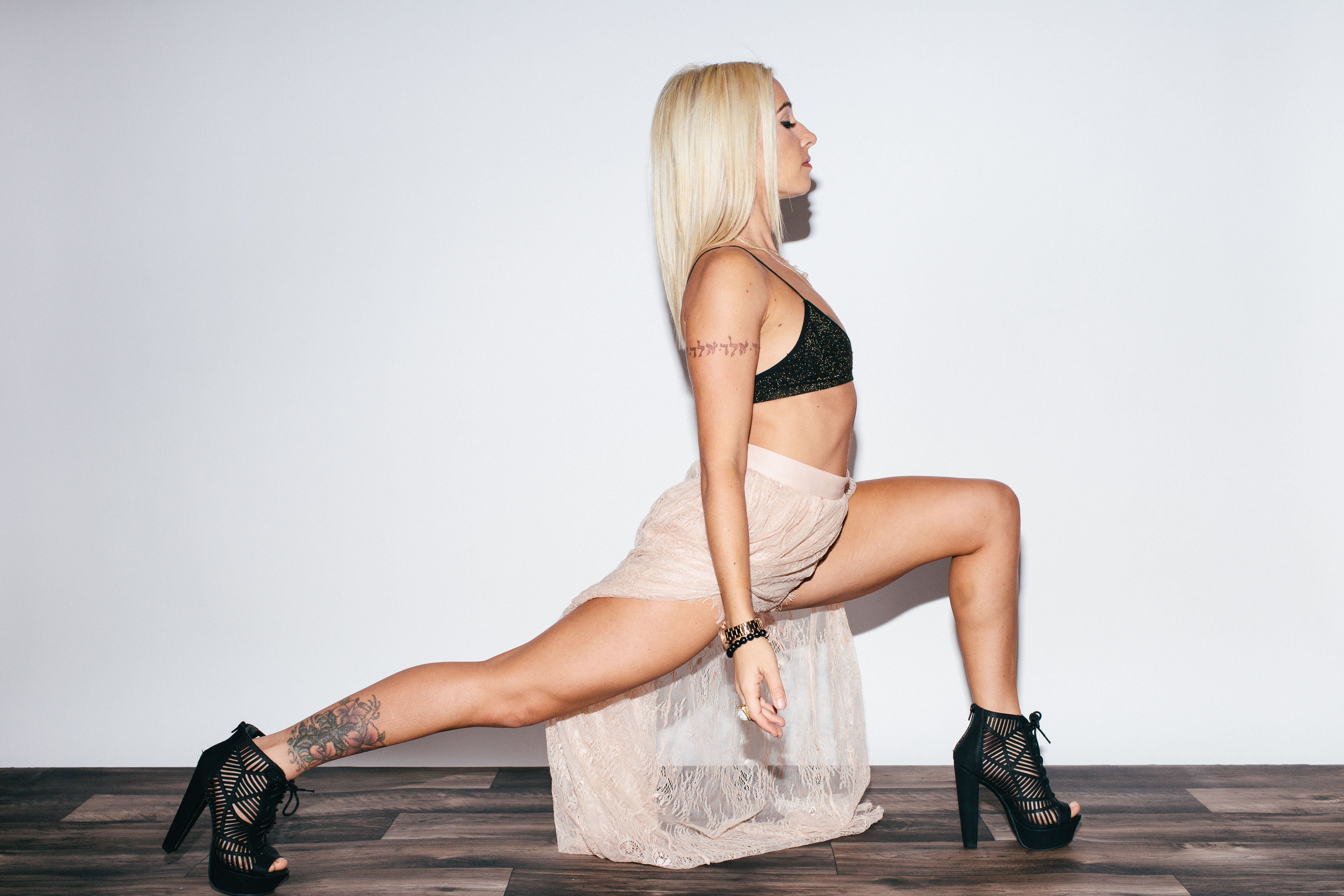
Sheri: So how would you say the ‘you from two years ago’ is different from who you are today?
Bizzie: “Honestly, I think I am 100% a different person today from two years ago. I’ve gotten to the place now where, a lot of the human chaos creation mechanisms, they don’t even occur, it’s not my body’s instinct anymore. You know, we’re even shown at a young age, it’s like, the angel and devil battling inside your head saying, ‘Do this good thing, no, do this bad thing!’. For the vast majority of us, we don’t actually see that voice as a little devil up there, but there’s an actual part of your brain that’s urging you to do all these things, and it feels really validated in what it’s telling you to do. However, those are the messages that I’ve learned to listen to, to the point where I’ve actually re-patterned my brain to no longer have them. So, a lot of the things I had to actively fight against two years ago don’t even exist now.”
Sheri: Yeah, I understand what you mean, I really do. I talk to my coach about this. And my therapist talks about it too. She describes it as three stages of emotional patterned thinking. So, when you have unconscious negative thoughts, it will create unconscious negative behavior, that’s the first stage. The second stage is that, when you recognize the conscious thought, which determines your conscious behavior, and that’s where the work is. You’re trying to rebuild that brain pattern.
Bizzie: “And once you’ve retrained yourself to no longer be chemically addicted, you don’t actually even have the unconscious negative thoughts.”
Sheri: Exactly.
Bizzie: “I’m 100% sure at this point, I have less than 2% of unconscious thought, and if it pops up, I’ll sit there and jokingly tell my students, ‘Just hit the delete button’. Every time there’s an unconscious thought that pops up in my head, I will literally immediately say, ‘Delete. Thanks brain, but no thanks’.”
Sheri: And that is the third stage. Unconscious positive thought leads to unconscious positive behavior. You just automatically do it, and when the negative thought pops up, you then have the ability to almost immediately disregard it. I haven’t reached that point yet. It’s still a battle for me.
Bizzie: “Just hit the delete button.”
Sheri: Do you ever read anything by Bob Proctor?
Bizzie: “Here’s the thing about the work that I do. I practice something that I refer to as ‘intentional ignorance’. I won’t read or study anything in the areas where I channel, to ensure that I know what I’m channeling is real. I’ve been imitated so many times by others that I would never want to do that to another human being. So, I practice intentional ignorance.”
Sheri: No, and that’s good, because you are creating from your own set of knowledge based on your spiritual gifts, and you could even be ‘unconsciously’ influenced by something that you’ve read.
Bizzie: “That’s right. I read, I just don’t read in any areas that I channel.”
What’s Next
Sheri: This is one question I’m going to take from my notes because I’m curious. What’s next for you? Do you have anything in the works?
Bizzie: “The Break Method is what I’ve been trying to focus on more and more, I think it’s absolutely what my soul came here to do, so honestly, anything else feels like it’s not really in alignment and there’s a lot of friction around it. ‘The Break Method’, I’ve been in the process of building out programming where we can offer programming for free to more impoverished areas of the country, and I will pay into a course so we can use some of our money so we can actually offer free content for different communities across the country.”
Sheri: Wow, that’s great.
Bizzie: “So that’s what I have to focus on this year.”
(pause)
Bizzie continues: “To be honest, I’m troubled with where we’ve come to in our world right now. I think people are addicted to this experience of injustice, but also not going out there and tangibly doing things to make a change. They just want to be submersed in this experience of how unjust and unfair the world is. In many cases, there are systemic problems that are causing injustice. Sometimes just getting mad about something on social media or showing your support through Instagram posts, that’s not real activism to me. I’d much rather be on the ground, talking to the person homeless on the street, that’s the work that I want to do.”
“One time when I was in New York, I was on my way to a meeting, I was in a rush, and I walked by this gentleman, and, I don’t know what illness he had, but he was basically just covered in bleeding sores. He had a face mask on, and he was not doing well. I went and gave him the cash I had on me, I just put it in his hand and said, ‘You’re going to be okay’. He turned around to give me a hug, and I had this human moment of hesitation where I remember thinking, ‘He’s covered in blood!’, but my soul urged me, ‘You’re here to give this man a hug right now in this moment, so fucking do it.’ And I had this amazing embrace with this man, and he cried there for a second. I knew in that moment that was my purpose and what God had called me to do. I don’t regret it.”
Sheri: That is… a beautiful story.
My Final Thoughts:
So, why did I end up a sniffly, snot-nosed mess at Starbucks this afternoon?
- Bizzie could’ve cancelled on me. The truth is, in her position, I probably would’ve cancelled on me. I realized how easily I can disregard the value of other people’s time. I need to work on that.
- I’ve devoted the past five years to improving my mental health, and yet I still struggle with negative thoughts. I have to beat them down every day. It’s exhausting. I’d love to get to the point where I can simply “press the delete button” without thinking.
- Being raised by a Baptist minister, I’ve fought a religious battle with my family for most of my life. Bizzie’s story about hugging the man with the bloody sores reminded me that Jesus used to do the same thing. He’d visit the lepers and he’d wash their feet. I’ve gotten so resentful about the politics of religion that I guess I’d forgotten that Jesus was actually a pretty cool dude.
- Perhaps most importantly, what I realized is that it’s been a long time since I actually truly gave a shit about the suffering of others. In my early 20’s, I did a lot of humanitarian work in Haiti and the Dominican Republic, and I had a genuine passion for helping others. Somewhere along the way, I lost sight of that.
What I realized about Bizzie is that there is something about her that forces you to be honest with yourself. That is why I’ve spent all week agonizing over writing this, because everything I wrote up ‘til this point felt hollow and two-dimensional. The only way I could write this was from a place of complete honesty and transparency, because that’s what Bizzie exemplifies. Whether you choose to believe in her spiritual gifts or not really doesn’t matter. She is tapped into something that is real and truth at its core. In a world of cynics, polarized opinions and social divide, people are looking for authentic voices. It comes as no surprise to me that she has become known as “the voice of the millennial generation”
It only seems fitting to finish this with my favorite line from Debbie Gibson’s song, “Electric Youth”.
Don’t lose sight of the potential mastermind.
Watch out world, if you haven’t heard of Bizzie Gold yet, don’t worry, you will.


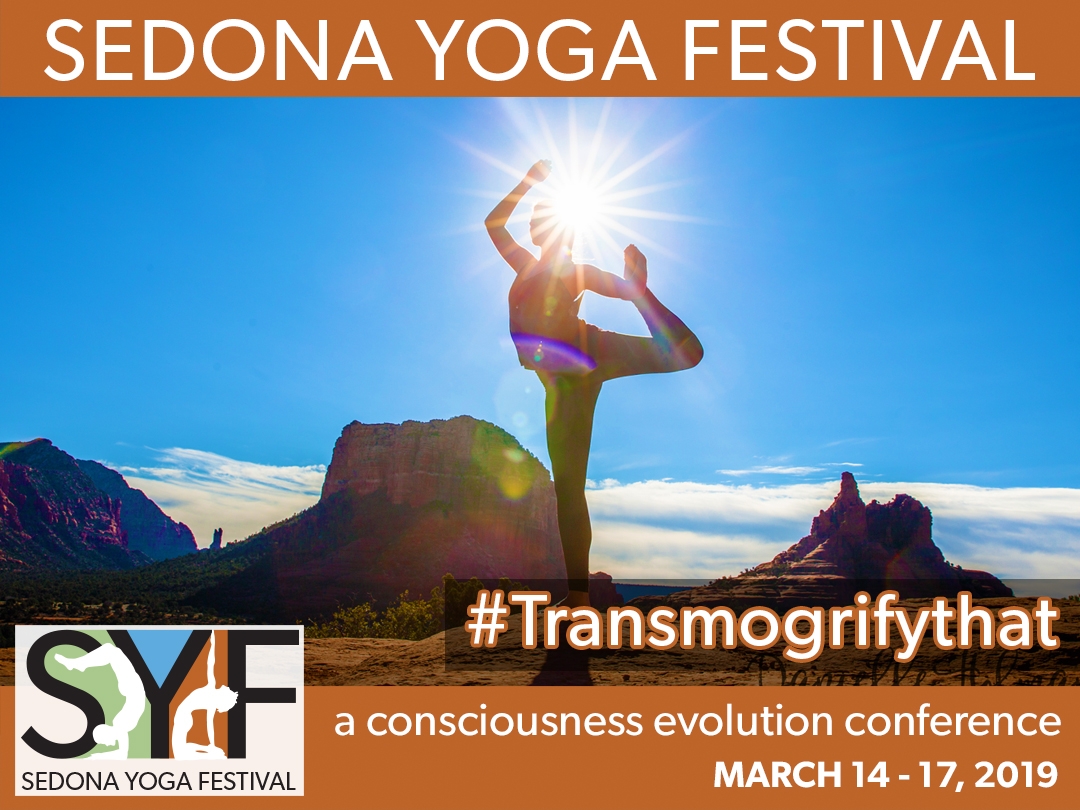

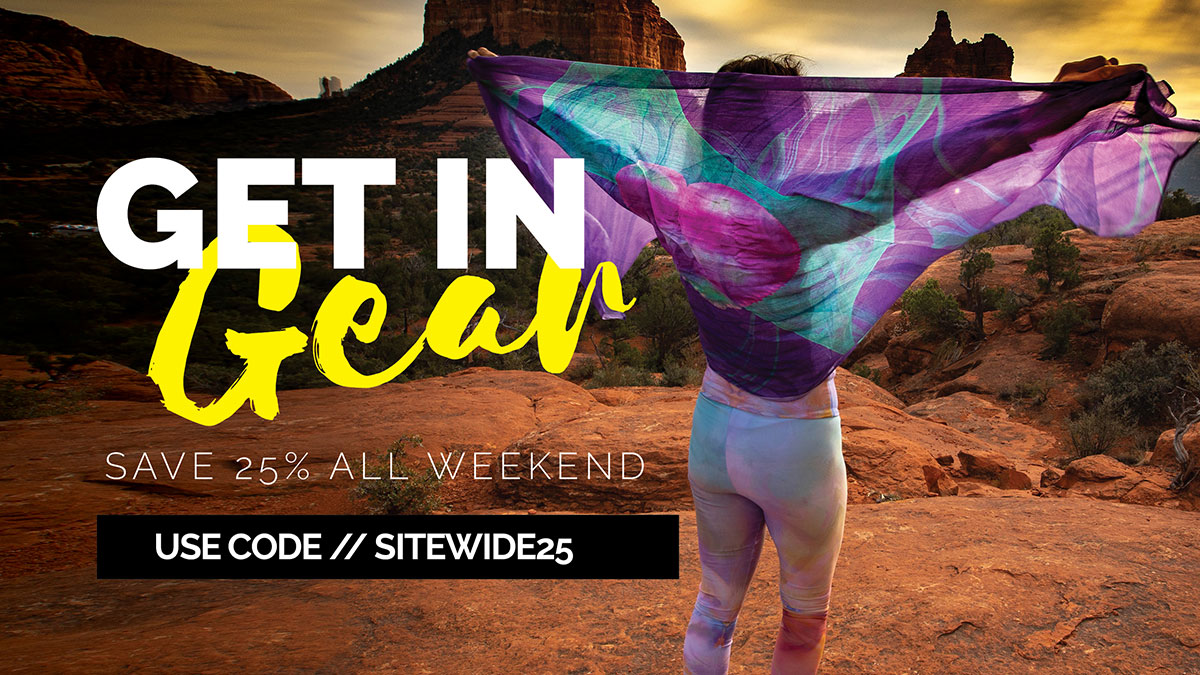
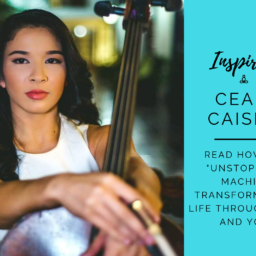
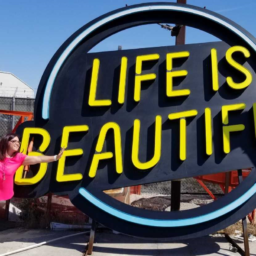
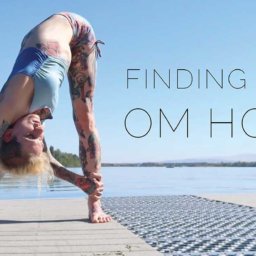
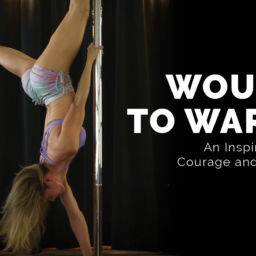
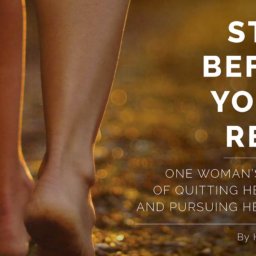
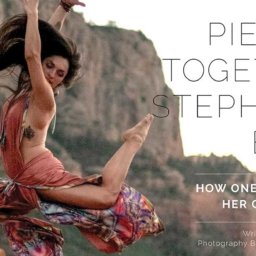
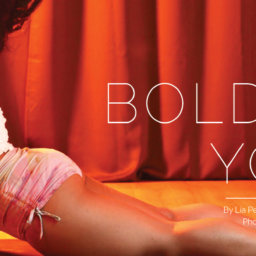
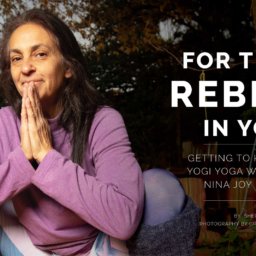
What an inspiring message!